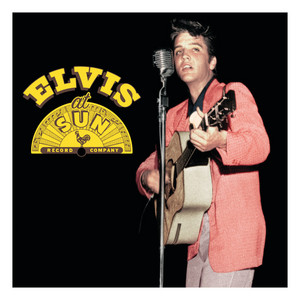Introduction:
“Blue Moon of Kentucky” by Elvis Presley stands as a timeless classic that has resonated with audiences for generations with its irresistible blend of bluegrass, country, and rockabilly influences. Originally written and recorded by Bill Monroe in 1946, Elvis Presley’s rendition of the song in 1954 marked a pivotal moment in the history of popular music, propelling him to stardom and solidifying his place as the King of Rock and Roll. In this extensive exploration, we delve into the origins, musicality, and enduring impact of “Blue Moon of Kentucky,” tracing its journey from humble beginnings to iconic status in the pantheon of American music.
Origins and Evolution:
“Blue Moon of Kentucky” was originally penned by Bill Monroe, the father of bluegrass music, in 1946. Monroe’s version of the song featured a lively bluegrass arrangement, complete with fiddle, mandolin, and tight vocal harmonies. The song’s melancholy lyrics and lilting melody captured the essence of heartbreak and longing, evoking the timeless allure of the Kentucky moonlit sky.
Elvis Presley’s rendition of “Blue Moon of Kentucky” in 1954 marked a departure from Monroe’s bluegrass roots, infusing the song with a driving rockabilly rhythm and Presley’s signature vocal style. Backed by Scotty Moore on guitar and Bill Black on bass, Presley’s recording of the song showcased his dynamic vocal range, energetic delivery, and charismatic stage presence, setting the stage for the rock and roll revolution that would follow.
Musicality and Innovation:
Elvis Presley’s version of “Blue Moon of Kentucky” is characterized by its infectious rhythm, rollicking tempo, and raw energy, which served as a precursor to the rockabilly sound that would define his early career. With its driving beat, twangy guitar licks, and spirited vocals, Presley’s rendition of the song captured the spirit of rebellion and youth culture that was sweeping across America in the 1950s.
Lyricism and Emotion:
At its core, “Blue Moon of Kentucky” is a poignant tale of heartbreak and loss, as the narrator laments the departure of his lover and the loneliness of the Kentucky night. The song’s haunting lyrics and evocative imagery evoke a sense of melancholy and longing, resonating with listeners who have experienced the pain of lost love. Elvis Presley’s heartfelt interpretation of the song adds depth and emotion to the lyrics, imbuing them with a sense of authenticity and sincerity that is palpable in every note.
Cultural Impact and Enduring Legacy:
Elvis Presley’s recording of “Blue Moon of Kentucky” catapulted him to stardom and introduced his unique blend of rockabilly, country, and rhythm and blues to a mainstream audience. The song’s success on the charts solidified Presley’s status as a rising star in the music industry and laid the groundwork for his legendary career as the King of Rock and Roll. Over the years, “Blue Moon of Kentucky” has been covered by countless artists across genres, cementing its status as a timeless classic that continues to resonate with audiences around the world.
Conclusion:
“Blue Moon of Kentucky” by Elvis Presley stands as a testament to the enduring power of music to transcend boundaries, evoke emotions, and unite audiences across generations. With its infectious rhythm, heartfelt lyrics, and iconic performance by the King of Rock and Roll himself, the song remains a shining example of the rich tapestry of American music. As listeners continue to be captivated by its timeless charm and timeless appeal, “Blue Moon of Kentucky” stands as a timeless tribute to the enduring legacy of one of the greatest musical icons of all time.
